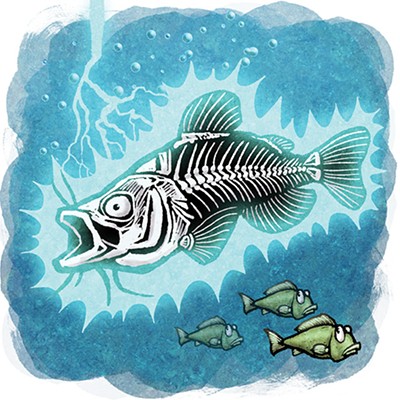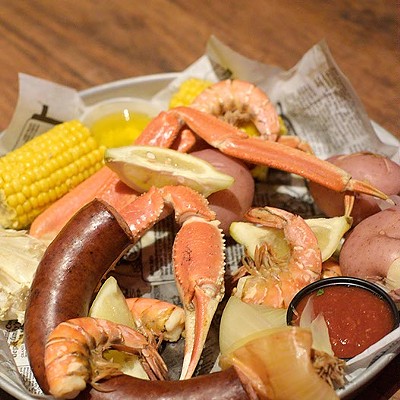Fishing is a popular pastime here in the Sooner State — just ask Paul George, who surely would not have recommitted to the Thunder if not for Oklahoma’s plentiful lakes and streams. And hey, even if Okies were not the ones to invent noodling, we certainly played a huge role in popularizing the sport of bare-knuckled gill grabbin’.
But a key factor in fishing’s popularity has to do with its relaxing pace and relatively low potential for injury, although anyone who has ever been hooked by an errant cast will disagree with the latter.
For one moment, however, imagine an Oklahoma where all the fish bit down on the line not with the small, aquatic analogs to teeth we’re accustomed to seeing but with a row of white, humanlike incisors. It wouldn’t be as fun to take that critter off the hook — not when he’s chattering like a joke store wind-up toy.
The frightening truth of the matter is that no one needs to press too hard to imagine such a world because it’s already here. The Oklahoma Game Wardens Facebook page recently posted a picture of 11-year-old Kennedy Smith of Lindsay posing with a piranha-like fish she caught at Fort Cobb Reservoir. A photo of the fish’s large chompers clinched in a kind of grin quickly went viral as people were stunned to learn such a thing was caught in Oklahoma.
We’ve heard of catfish, but never Cheshire Catfish. What exactly does this toothed terror eat? Leathered beef jerky? Unshelled pumpkin seeds?
Well, Smith landed the fish on a night crawler, so maybe Mr. Fish thought he was about to gnaw on an extra chewy gummy worm. According to the Game Wardens Facebook page, the fish was not a piranha, but a cousin fish called a pacu. The South American fish eats mostly plant material but are technically considered omnivorous. So basically they have the same diet as your 13-year-old niece who recently converted to vegetarianism but for some reason still eats a 10-piece box of Chicken McNuggets at every meal.
Thankfully, Smith still has all her fingers after capturing the fish, which was likely released into the lake as a one-time exotic pet that grew too large for its tank. The Game Wardens remind everyone that this is an invasive, non-native species and any Oklahoman who catches one should contact their local game warden. Though, with teeth like this, you might want to give your dentist a call, too.
















